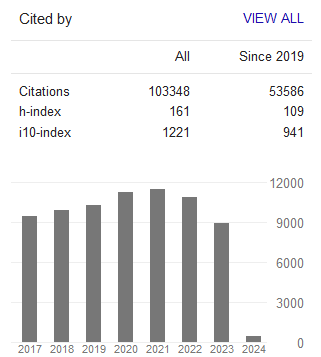Building a Knowledge Repository: Linking Jordanian Universities E-library in an Integrated Database System
- Faleh, A. Alhawary
- Hani, J. Irtaimeh
- Khaled, Bany Hamdan
Abstract
University library always seen as the mother source of knowledge, it contains all types of knowledge (Books,Projects, Papers, Dissertations, Thesis… etc). Many universities are transforming their libraries to e-library or
digital library. Jordanian universities began automating their libraries in the early 1980s, and today they are
switching to e-library.
But despite the rise of e-library still researchers and students find a hard time in searching for certain data or
information because it is scattered here and there in different university libraries (traditional or e-libraries) or may
be some times not stored in proper manner, neither accessible to other researchers, Jordanian universities are
floating of knowledge but are not smartly utilized due to the lack of connection between university e-libraries.
The study believe that library can still have the opportunity to switch back the attention and interests of people and
academicians and other researchers through the new attractiveness look, therefore, the main objective of this paper
is built on the belief that building a knowledge repository can be through linking Jordanian universities e-libraries
in an integrated database System that can allow and encourages the academicians, administrators, lecturers,
researchers, information workers, and librarians to quick and easily access all Jordanian university e-libraries
through one database system, such integration can efficiently preserve and provide knowledge, beside the
supporting, uploading and the downloading of knowledge assets. The study concluded that Jordanian universities
have all the possibilities to successfully establish such project, but at the same time there are some serious
challenges need to be taken in consideration. They include collection building, infrastructure, acceptability, access
restrictions, readability, standardization, authentication, preservation, copyright, policy and strategic issues, user
interface, funding etc. Yet the advantages outweigh most of the bottlenecks and hardships and therefore the
importance of integrating e-libraries in one database have been recognized by many nations of the world.
- Full Text:
 PDF
PDF
- DOI:10.5539/ijbm.v6n4p129
Journal Metrics
Google-based Impact Factor (2023): 0.86
h-index(2023): 152
i10-index(2023): 1168

Index
- Academic Journals Database
- ACNP
- AIDEA list (Italian Academy of Business Administration)
- ANVUR (Italian National Agency for the Evaluation of Universities and Research Institutes)
- Berkeley Library
- CNKI Scholar
- COPAC
- EBSCOhost
- Electronic Journals Library
- Elektronische Zeitschriftenbibliothek (EZB)
- EuroPub Database
- Excellence in Research for Australia (ERA)
- Genamics JournalSeek
- GETIT@YALE (Yale University Library)
- IBZ Online
- JournalTOCs
- Library and Archives Canada
- LOCKSS
- MIAR
- National Library of Australia
- Norwegian Centre for Research Data (NSD)
- PKP Open Archives Harvester
- Publons
- Qualis/CAPES
- RePEc
- ROAD
- Scilit
- SHERPA/RoMEO
- Standard Periodical Directory
- Universe Digital Library
- UoS Library
- WorldCat
- ZBW-German National Library of Economics
Contact
- Stephen LeeEditorial Assistant
- ijbm@ccsenet.org
